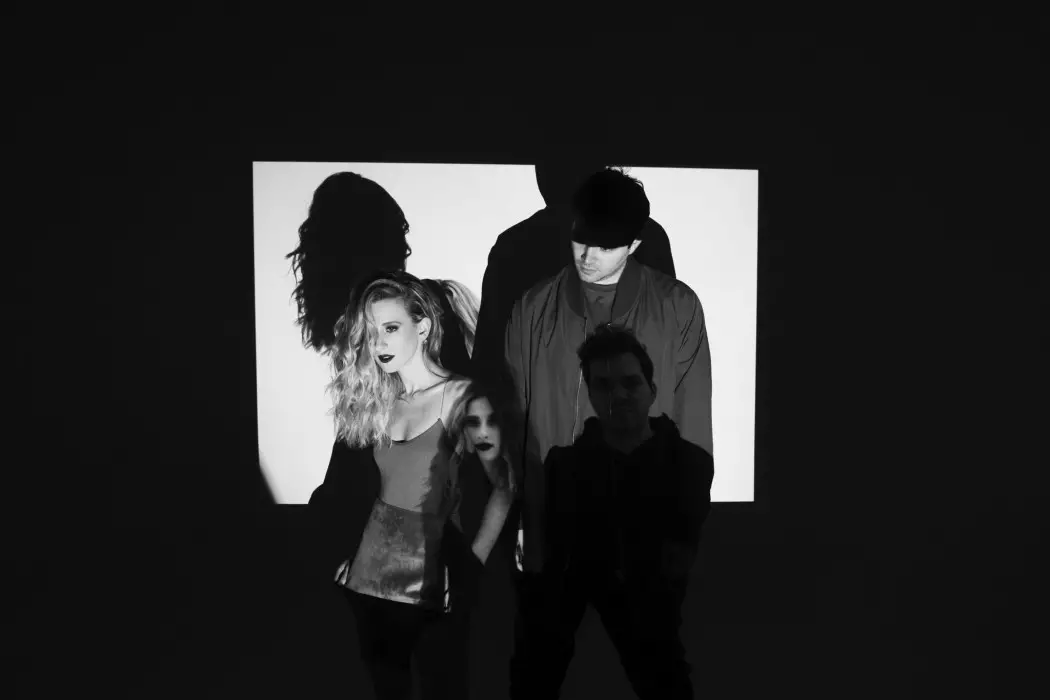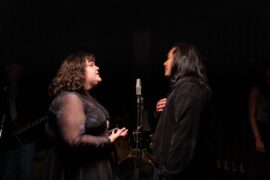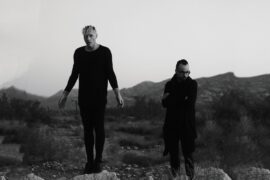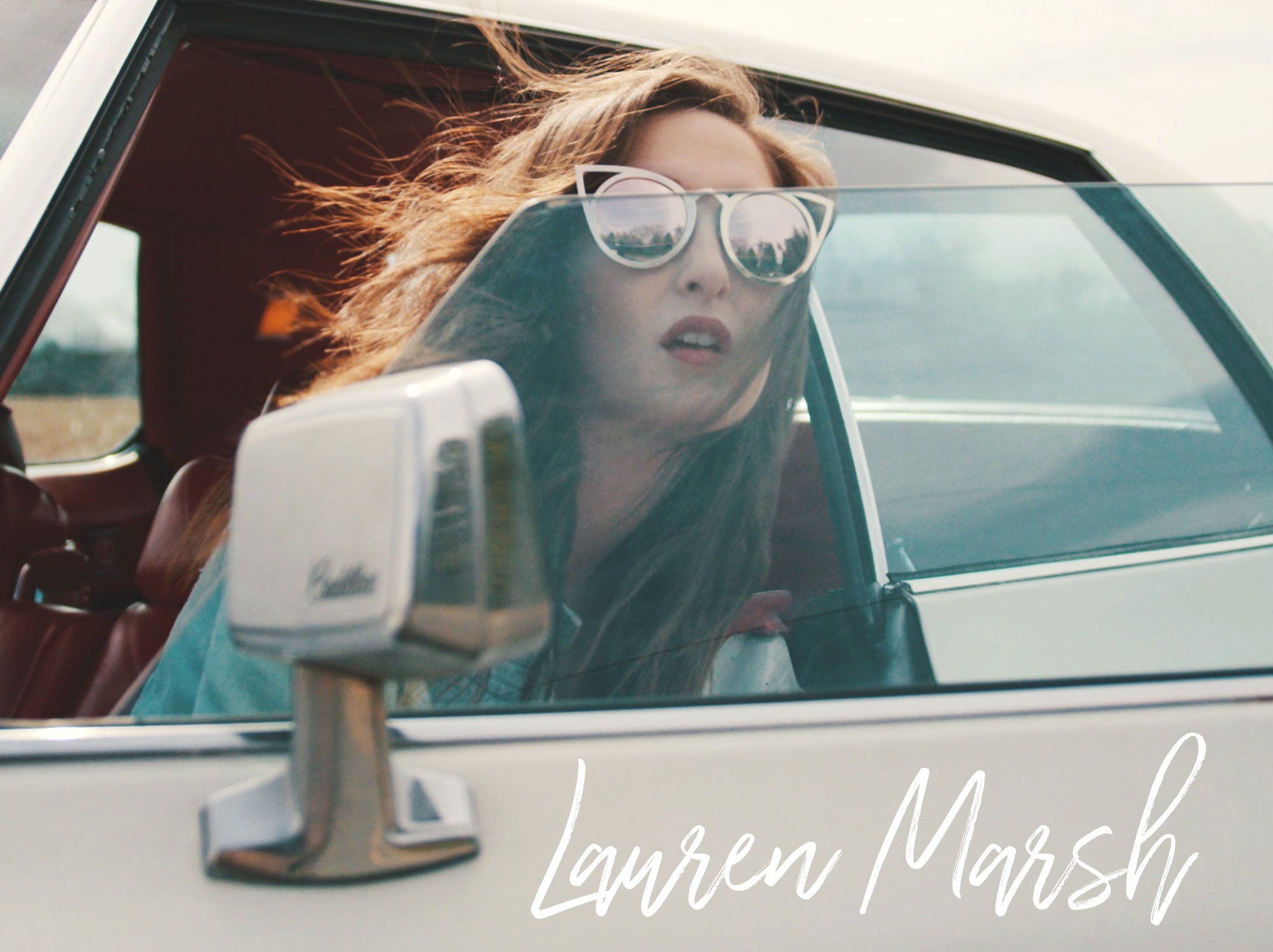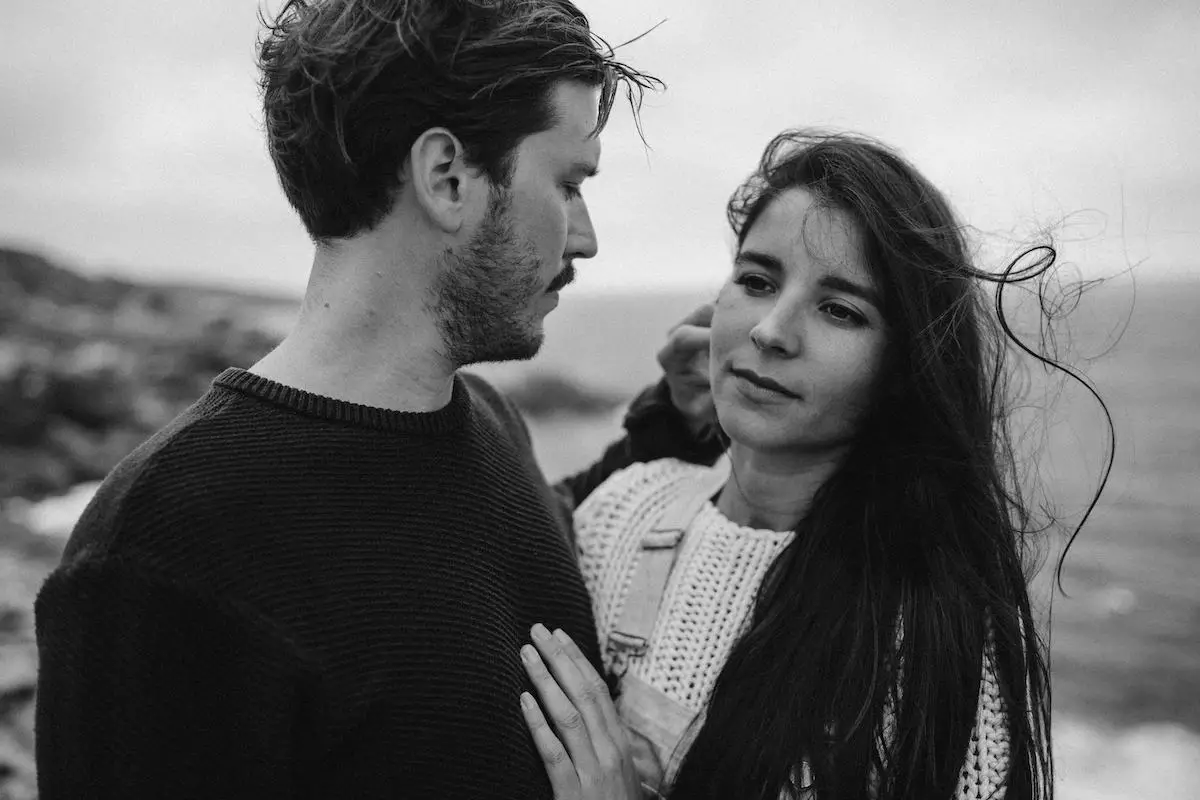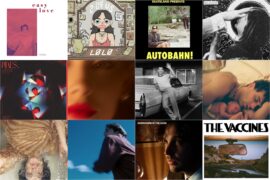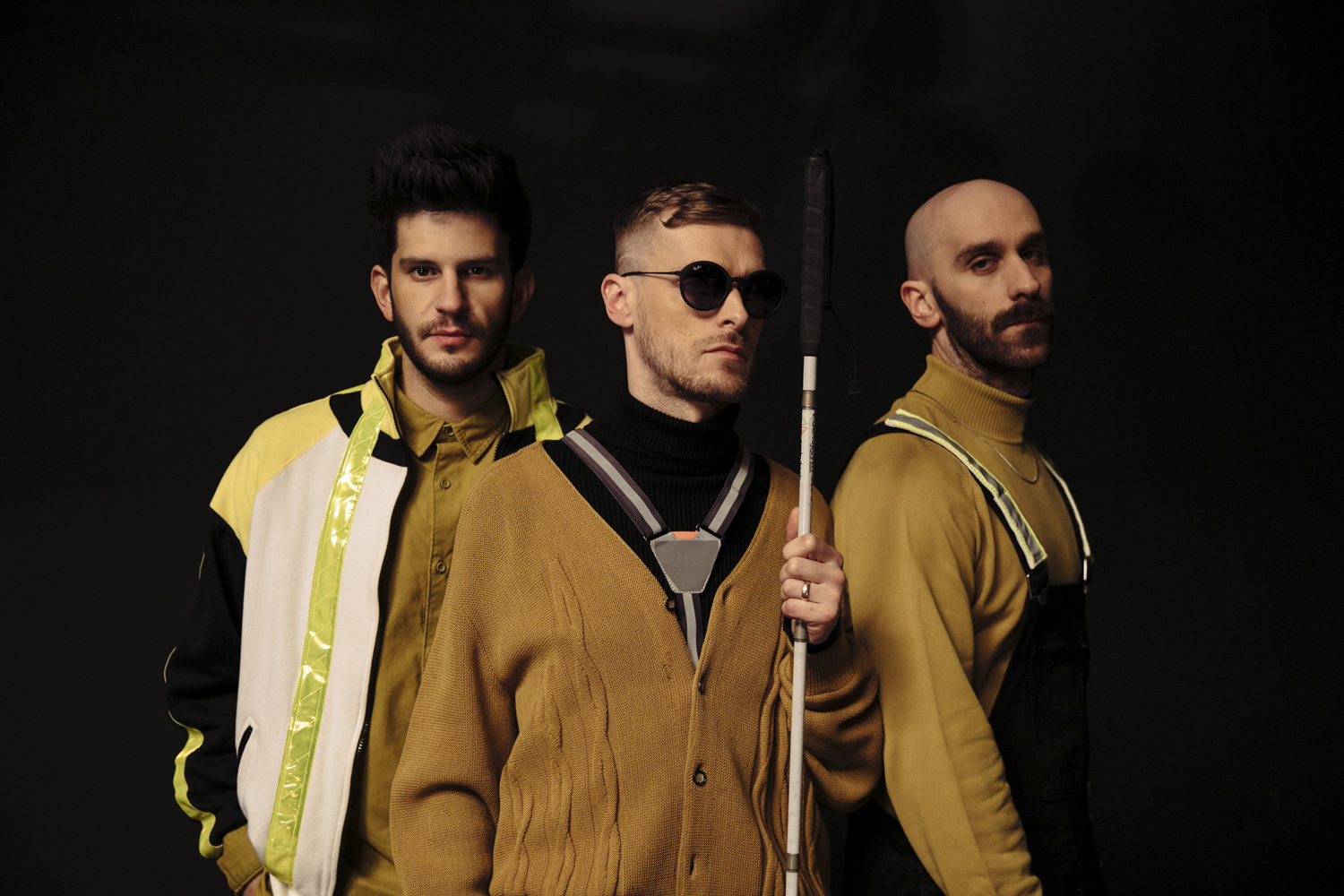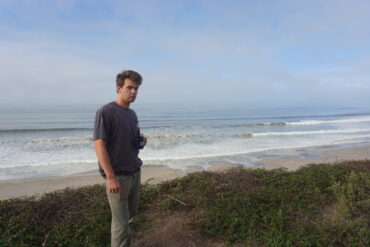Marian Hill have masterfully blended together a unique sonic palette that holistically separates them as an incomparable tour-de-force in the industry.
— —
“I think it’s important, especially in today’s industry when people’s attention spans are so short and there’s so much competition and everything is so structured on how many millions of streams do you have — which is an amazing accomplishment — but it’s important, I think, to really take stock of where you were, and what you were doing a few years ago, and how far you’ve come, and to just be as present as you can in the moment, and to really appreciate what you’re doing, I guess, and where you want to go.” Marian Hill’s Sam Gongol notes.
New York-by-way-of-Philly duo Marian Hill, comprised of Gongol and Jeremy Lloyd, have masterfully blended together a unique sonic palette that mixes fluid instrumentation with tactile lyricism, taking technicality and narration and coupling them together into one beautifully cohesive aural mold. The duo, who first released their debut album Act One in the summer of 2016, subsequently found international success thanks to Apple featuring their song “Down” on a commercial for Airpods in winter of 2017, thus achieving the impressive title of “Most Shazamed Band in America.” They’ve traveled the world over, winning over audiences with their entrancing melodies and sublime tones.

Through the whirlwind of it all, they managed to continue creating new music, and recently put forth their sophomore effort, Unusual, on May 11th (Republic). The album further cements their impressive musical prowess, offering dynamic story arcs of pursuing individuality and falling in love with oneself, while dually acknowledging romantic partnerships and the various ways they can ultimately play out. The ten-track album is simultaneously empowering and heart-wrenching, offering a dichotomy that fully reflects very real life experiences.
Gongol and Lloyd are a powerhouse of talent individually, with Lloyd taking production duties and Gongol on vocals. Put them together, and they’re an incomparable tour-de-force that holistically makes Marian Hill an inimitable act in the industry. The music they’ve ultimately created has continued to push boundaries, while maintaining very purposeful meaning behind it.
“[T]here were two main conversations we had before we really started working on the record. The first one was, when we were on tour for “Down,” and I remember us both talking about how we wanted to make stuff that was weirder, and stuff that was poppier, and try to see if we could do that at the same time, and push ourselves in both competing directions,” Lloyd explains. “And then a few months later, basically when the election happened, I know we were sitting in and starting to write the music, thinking about what we felt like we needed to do as artists, and we really wanted to make people feel strong.”
Listen: “Down” – Marian Hill
A CONVERSATION WITH MARIAN HILL
Atwood Magazine: I really, really love the new album. Is there anything that really inspired the writing process specifically, or did you go into it kind of free-will, whatever happens will happen?
Sam Gongol: I mean, I think… It’s hard, because I think you have to get into a groove, and you kind of have to see, talk about what you’re feeling, and kind of, I think at least for our writing process, a lot of it starts with the production, and then we create the songs, and they’re basically formed from that.
Jeremy Lloyd: Yeah, but there were two main conversations we had before we really started working on the record. The first one was, when we were on tour for “Down,” and I remember us both talking about how we wanted to make stuff that was weirder, and stuff that was poppier, and try to see if we could do that at the same time, and push ourselves in both competing directions. And then a few months later, basically when the election happened, I know we were sitting in and starting to write the music, thinking about what we felt like we needed to do as artists, and we really wanted to make people feel strong.
A lot of empowerment themes.
Jeremy: Yeah, empowerment, and just making people feel good and strong, both musically and lyrically.
Yeah, the album has a lot of that. I think that’s really cool.
Sam: Yeah, and I think it’s funny, because we always… We’ve always sort of championed female empowerment, but I guess we’ve never been explicitly asked, and then as Jeremy said, with the election, when we were talking about it in our conversations, we really wanted to make sure that we really drove that home, and we just wrote songs that were a little bit stronger, and a bit more overtly powerful. And also in our songs, there’s a couple that feature – because we’ve always written about relationships, too – there’s a couple songs that feature a twist at the end; start as one thing, end as another. So we wanted to reflect sort of more complex relationships with the narratives.
Jeremy: Well, yeah, I guess also going into making things weirder, like, playing with when something’s more poppy, playing with the structure of the lyric, and the song idea, and making it really something you need to pay attention to to really track the whole progress of it, I think was something really fun for us to write, as people who get really meticulous about songwriting, and really specific. But it’s also a way that those specific things in each song tie into the larger vibe of making unusual music.
I think there’s a really, really special thing that can happen when someone hears a song that you’ve made, and has an emotional experience with it, and a connection to it.

Makes sense! Is there anything that inspired any of the lyrics, specifically? The first half of the record, I noticed, is very much about the individual, more so – I don’t know if I’m right in thinking that? I kind of got that vibe.
Sam: I need to think about that for a second!
Sorry! I just noticed that it starts kind of talking a bit more about individuality, and then it later on delves more into an external thing.
Jeremy: I get that! There’s definitely a moment on “Sideways” where, “Sideways” is kind of like the most detached from an experience. There’s a lot more like, urgency and specificity in the first several [songs], and it’s more situational. And then in “Sideways,” you can kind of zoom out.
Sam: Yeah, I feel that.
I was wondering if that was intentional, but I guess not!
Sam: Yeah, I don’t think so!
Jeremy: We’ve had album… Like, Act One has a kind of arc. But it’s always more of a general thing, and a feel. Like, I know the order feels really good to us, and it feels really right. Like, “Sideways” needed to be in the back half, and “Go Quietly” needed to be at the end, and “Subtle Thing” needed to be at the beginning. And then a lot of the rest is just what felt good.
Do you have a favorite song on the album?
Sam: Yeah! I think some… I haven’t performed them all, so I’d have to think of a favorite recorded one versus my favorite songs to play live, but one of my favorites is “Don’t Miss You.” I’m really excited about that one.
Jeremy: It’s really hard for me to pick favorites. I love them all a lot, but I will say that I’m really proud of the beat and the groove of “Wish You Would.” It’s like a really fun, up-tempo feel that I haven’t really captured before, and I really love it. I’m also really proud of the songwriting on “Sideways,” which is one of the most stripped songwriter style songs that we’ve written, and I’m just really proud of the lyrics and the story it tells and reveals throughout, and the structure.
Listen: “Sideways” – Marian Hill
Where did you record the album?
Jeremy: All over! A lot of it was at our studio in New York, and some of it was at different studio spots while on tour. “Sideways” happened in large part at UC Riverside, and then we recorded the Rhodes at Universal Publishing Studios in LA, and then “Don’t Do It” was written and made mostly on the tour bus, and then we just re-tracked vocals. And “Subtle Thing” was in my bedroom, before we had our studio.
Sam: And then the GRAMMY moment – that little, weird vocal distortion [on “Subtle Thing”]…
Jeremy: …No distortion, just pitched.
Sam: …Pitch – we were sound-checking a GRAMMY event, kind of when “Down” was happening. So it was like, February of 2017? And Jeremy was just kind of messing around, and he started playing one of the vocal samples pitched down.
Jeremy: Yeah, the “you, you, you, you” patch from “About You,” and I just was playing it really low, and it just became that stretched out thing.
Cool!
Sam: Yeah, so that’s just a cool little anecdote.
Listen: “Subtle Thing” – Marian Hill
So how have things shifted in the last year, now that the commercial happened, and you’ve done all these events, and all these festivals? What’s gone on from January 2017 to now?
Sam: So much! Yeah, we just got really busy. And we’ve traveled all over. I mean, we were able to take “Down” to Jools Holland in the U.K.; we’ve played a late night T.V. show in Milan; so, we’ve had a lot of firsts, a lot of big moments. And so we were supposed to start writing the album a lot sooner than we did – and we’re super grateful for “Down,” it was amazing, but it took us a little bit longer than expected to get into writing. We were finally able to have some time off and really delve in, and we had a pretty chill beginning of this year, so I think we’re ready.
Jeremy: Yeah, we took the summer and fall [of 2017] to wrap up the record and get everything ready.
Sam: Yeah, so we’re just kind of starting our busy schedule again. But it was nice to have a moment to kind of reflect and forget about the year, and where we’re going.
I think society tries to dictate success, but I think it’s ultimately what you make of it.
Very nice. And I’m curious as to why music is important to you, individually and as a collective? Why does it matter, why do you make it?
Jeremy: Music is the best thing that I have found, personally, to both express myself – it’s kind of a life force for me. If I’m not making music that I’m excited about, then like within a couple weeks I get more sad. It’s a thing I need to do to keep myself going. But it’s also the most profound way I’ve been able to find to connect with people. I think there’s a really, really special thing that can happen when someone hears a song that you’ve made, and has an emotional experience with it, and a connection to it. And I feel like there’s a way that they know what you were trying to convey there in a truer way than they ever could in any other way, if they understand a song.
Sam: Mine’s not that deep or eloquent! But, I just love music. I grew up singing; I can’t remember a time when I wasn’t. I’m not always creating music, per se, but I’m always singing; I think much to my parents’ and family’s annoyance when I was growing up. And of course, discovering new music. And performing, I’ve actually really learned to love; I didn’t used to, I used to get really, really nervous. So, yeah, I can’t imagine not doing it, especially now at this point in my life, it’s just everything.
Well both of those answers bring it all together! Perfect. It makes you guys whole.
Sam: Yeah, well we’re really lucky to do what we do, for sure. Even when you’re sleep deprived and don’t know what day it is.
It’s fine! It’s all good.
Sam: Yeah, they’re crazy lives, and it flies. But we’re lucky.
And now, having all of the successes that you’ve had, do you think that success can be measured in any way?
Sam: I think society tries to dictate success, but I think it’s ultimately what you make of it. I think success could be getting the courage to sing at an open mic night, or it could be selling out arenas, or it could be somewhere in between. I think it’s important, especially in today’s industry when people’s attention spans are so short and there’s so much competition and everything is so structured on how many millions of streams do you have — which is an amazing accomplishment — but it’s important, I think, to really take stock of where you were, and what you were doing a few years ago, and how far you’ve come, and to just be as present as you can in the moment, and to really appreciate what you’re doing, I guess, and where you want to go. It’s not always about the highest numbers or the most plaques, you know? So, I think it’s important to find it for yourself.
Jeremy: I would agree with that. For me, I feel like we were successful way before “Down” happened. “Down” was an amazing boom, but if I can make music every day, and can live somewhere I like, and eat the food I want, that’s all I need, and that’s the dream. So that’s success for me.
Sam: Yeah, and you know, I’d say it’s funny, too, because I remember… I think, and it’s sort of obvious, you achieve one benchmark and you just keep striving for the next one. And I remember kind of early on, our parents toasted us to 10,000 streams on SoundCloud for our song “Whisky.” They were like, “Oh my god, this is so cool! So exciting!” And then, you know, maybe a year and a half, two years later, I was upset about something that didn’t happen, and [my mom] was like, “Remember when you were so excited about those 10,000 streams?” And I was like, “You’re right.” Keeping me grounded.
Listen: “Whisky” – Marian Hill
What is something that — because obviously people know who you are, and know you’re music — what is something that you want people to know about you that they might not?
Sam: Jeremy sings.
Will you ever sing on a song?
Jeremy: If it ever feels right. I’m just super picky, especially as a producer. And with my voice, I’ve got to figure out a way to suit it to pop music.
Got it. Would you ever dive into other genres? I know you’ve done some jazzy stuff as well, so would you try anything else?
Jeremy: Probably not. Sam was in choirs so maybe that again.
Sam: So funny, I could never imagine singing in a choir again. Although I did love gospel choir; I would consider that again. But, yeah, I would certainly consider [other genres]! Why not?
What would be a genre that you would want to try?
Sam: I’d almost want to try and go even further with jazz. I don’t know; it’s so funny, I was up late on the bus a couple nights ago, and I dove into old Ella Fitzgerald videos. And I realized, I love her records, but I never watched her before.
Jeremy: Live, she’s a force of nature. It’s crazy.
Sam: Yeah! I realized I never dove into her live performances, and I don’t what inspired me, but she is… Like, it gave me goosebumps all over. It’s been a really long time since I’ve been that inspired by either a song I’ve heard, or a live performance. She’s so incredible. And just like, her vocal technique, and her ability, and just her performance style is so understated, yet so powerful. I feel like it’s kind of a lost art; but it also really just made me want to dive into some jazz, which is something I haven’t really done. I’ve only ever just scratched the surface. See where it goes.
Nice. So to wrap up — what is the best piece of advice you’ve ever received, and what is the best piece of advice you could give?
Jeremy: Mine are kind of the same. I got advice from this composer, Adam Guettel, once, he’s a musical theatre composer that I really admire and got to meet. And he said… I mean, you could put it so many different ways, but the core of it is, when you are making your art – whatever you’re doing – it should always feel like you’re playing. It should always feel really fun and exciting, and like you want to try stuff and play. And if it ever stops feeling like that, it’s okay, but you should take a step back and try to find that playful energy somewhere, and not lose that.
Sam: Yeah, I’d probably have the same piece of advice with the advice that I would give. It’s to not stand in your own way. This is so random, but I’m a really big hockey fan, and growing up, my dad knew someone who knew someone who was a referee, who gave me [an autograph] from the two best players in hockey, and the referee signed it in between them, and he said, “The only thing that stands between true greatness is ourselves.” And even before I really started thinking about music as a career, I think, especially in entertainment it can be really hard, and it can be really… You get a lot of rejection, and you get a lot of no’s, but it’s really important to keep going, and it’s important to be as fearless as you can, and to take risks.
— — — —

Connect with Marian Hill on
Facebook, Twitter, Instagram
Discover new music on Atwood Magazine
? © Shervin Lainez

